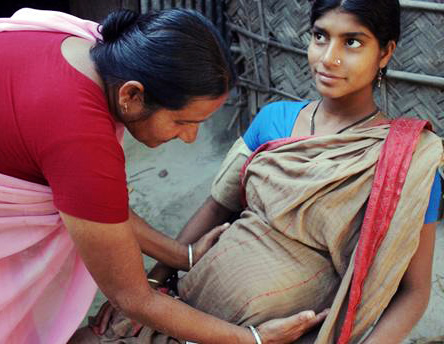Antenatal care (ANC) is surely one of the most important components during pregnancy. This essential care allows women to be diagnosed during their pregnancies so they learn to know about the possible complications and can accordingly receive proper treatment accordingly. Proper ANC reduces the chances of maternal and neonatal mortality and supports the birth of healthy child. Thus, utilization of ANC has been increasing steadily throughout the past decades, with 86% women worldwide now attending at least one ANC visit and 62% receiving at least four ANC visits. Though ANC utilization has increased over the past two decades, the situation in the rural areas of a developing country like Bangladesh is not that much impressive. Absence of proper knowledge, poverty, illiteracy etc. works as the driving factors behind this lacking.
In a survey published in 2018, the condition of the antenatal care service in the rural areas of Bangladesh is highlighted. A community-based survey was conducted in two sub-districts of Netrokona district, Bangladesh in 2016. A total of 737 women who recently gave birth, were interviewed. Around 25% of women attended at least four ANC contacts, with only 11% initiating ANC in the first trimester of pregnancy. Blood pressure was measured in almost all of the ANC contacts (92%), and abdominal examination performed in 80% and weight measured in 85% of ANC contacts. Urine tests were conducted in less than half of the ANC contacts, whereas blood screening tests and ultrasound were conducted in 45% contacts. Health care providers counseled women on danger signs in only 66% of the ANC contacts. Although, overall, the content of facility-based ANC contacts were better than home-based ANC contacts across all components, adequate coverage of ANC remains poor in Netrokona, Bangladesh as important gaps remain in the quality/content of ANC contacts.
This study demonstrates that coverage of ANC remains poor in Netrokona, Bangladesh, both in terms of timing of initiation of ANC and in the number of contacts. When conducted appropriately and completely, ANC has the potential to save lives and make a major contribution to Bangladesh’s advancement towards achieving the SDGs as well as it own development. So it is recommended that, by overcoming the barriers, ANC should be prioritized.











 (12)
(12)